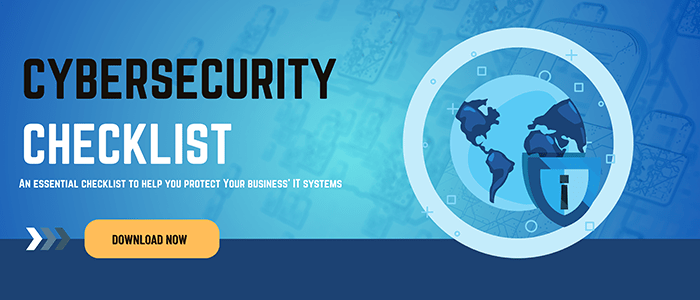Remote Work Force Standards

Many businesses have remote workforces, and these teams have special security concerns. In this week’s episode, we talk about how to strengthen security and support your remote team.
Orion Graves: Welcome to PCG Tech Tuesday. I’m here today with Dave Hodgdon from PCG. Today’s topic is about the remote workforce and the challenges of managing these users, and the security concerns companies should have. Good day, Dave, how are you today?
Dave Hodgdon: Awesome. How about you today, Orion?
Orion: Not too bad.
Dave: All right.
Should Remote Workers Use Their Own Computers to Connect to the Network?
Orion: So Dave, should employees use their own home PC to connect to the company network?
Dave: Absolutely not. In today’s world, Orion, that home machine potentially does not have all the security services, antivirus up to date, the Windows up to date. You have an unknown of that machine on your company network, which is a huge risk.
I think it’s imperative that the PC be company-owned. That way it’s under the control of the company, they know what services are on there, and they know that employee is doing what they should be doing.
Why You Need a Remote Workforce Policy
Orion: So in regards to having a remote workforce, should companies have a remote workforce policy?
Dave: That absolutely is imperative. All companies should have a policy, whether it’s your remote workforce, how you hire people. The remote workforce policy is basically taking all the components of what you want that person to expect working from home.
First of all, can they work from home? Is the asset owned by the company or by the employee? The hours of work? What should be working from their home wireless? Is it expected that they can work remotely one day, two days, three days? A lot of these times the remote workforce policy comes out of what’s known as the risk assessment.
But every company, especially in today’s world where more and more people are working remotely, it is imperative that that company has a solid workforce policy in place.
Can You Manage an Employee’s Home PC?
Orion: In regards to people working from home. Can you manage an employee’s home PC?
Dave: Without us having our tools on there, it is difficult for us or the company to manage that PC. They could have their own version of a Mac and they could have a PC with Windows Home on it. When we have no visibility to what that person’s using, we don’t know if that is a family owned PC that the kids are using, both parents are using, friends coming in and using it. We don’t know if that machine is on a private wireless or just open to the public. It is important that the machine itself be managed by the managed service provider and the company has complete control of that. So I would never have a person use a home computer.
How Should Remote Employees Connect to the Internet?
Orion: How should remote employees then connect to the internet from their home when they’re working from home?
Dave: There’s usually two ways. A hardwired connection would be great, but typically in a home a lot of people are connecting to their cable modem or Comcast, or Verizon, most likely in the home. There’s probably not a hard wire going to that PC. So most people in the home environment are connecting wireless now.
And what they should be doing is setting up, just like you would in a business, you should be setting up your home private network as well as your home public network. So any relatives, friends, are coming in, they would hit the public side, but if there’s going to be a remote work policy in place, the employees should be on a private network connected to your network to help it be secure.
Cybersecurity Risks of Remote Workers
Orion: With everyone working from home a lot more these days. Are there more cybersecurity risks with people working from home?
Dave: Absolutely, and great question. Since the covid hit, it’s been trending upwards Orion, about 66% of these cyber attacks are happening from the remote workforce. In the old days you kind of had in four walls the business network under one network, one firewall under control. Now a 30 user network, you could have these 30 independent people, 30 islands that you don’t have complete control over. So it is important that you do have something in place, and there are by far so many more security risks because you don’t have the right antivirus, the machine’s not up to date, you have possibly not a secure wireless signal. That bad actor has so many easier ways to get to that person and that is a huge risk.
How to Address Security Concerns About Remote Workers
Orion: You’re talking about security concerns there. What can companies do to address this?
Dave: Well, first of all, I think it starts with the remote workforce policy. There should be a checklist of what that person should do and not do. And then when that machine is connected to a network, does it have a VPN? Is the antivirus up to date? Does it have what’s known as an EDR, which is kind of an antivirus on steroids looking for unusual behavior. What kind of security training we are doing? So these are things that all should be in place to allow for a much better experience and to make sure your company data is safe.
How Remote Options Can Help Attract and Retain Employees
Orion: How can companies attract more employees in regards to this?
Dave: I think remote workforce is here to stay, so that question I think is in order to attract and retain employees you need to give flexibility. We’ve seen it here at PCG, we’ve seen almost all of our clients that more and more companies have the ability to work from home.
And there are plenty of reasons. That’s a huge plus for them. You’re not being bugged. You have more privacy to get things done. You’re not being interrupted. But there’s also times when people need to be at work to collaborate together. I think it needs to be a mix of a hybrid environment, and the nice thing about attracting more employees, you don’t have to be just in your geographic area.
So if you want someone in sales and you want to be selling in another area, you can attract someone that lives in that area. So I think the remote workforce is here to stay, I think you need to give them flexibility to work not only in the office or remote. Because if you don’t give it to them, they’re going to go to another company that can.
Join PCG Tech Tuesday Next Week to Learn More
Orion: Well, thank you Dave for your inside on remote workforce and what companies should be doing to keep their network safer and more secure, and have the ability to attract more employees to their growing businesses.
Dave: My pleasure, OG, have a great day.
Orion: You as well, Dave. And that’s been this Week’s Tech Tuesday. Join us next week for more tech tips.




